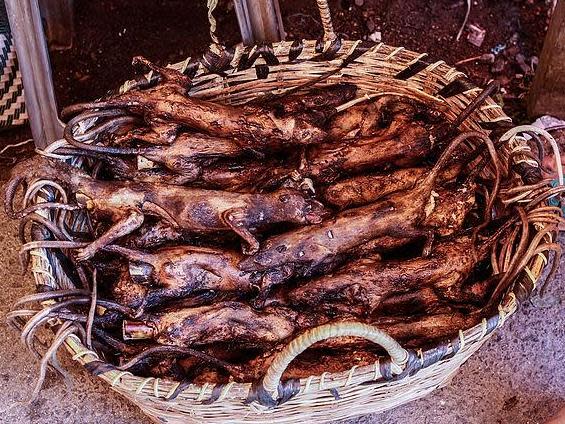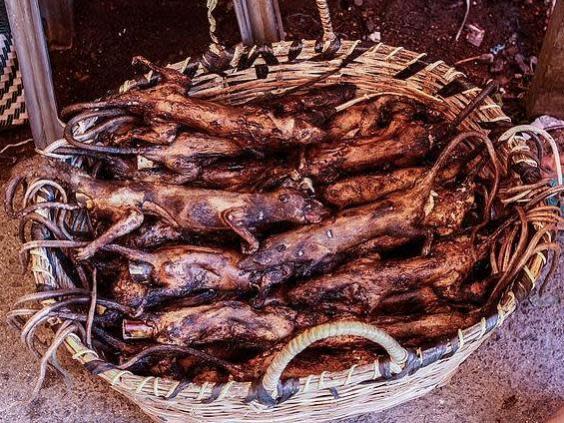Rats at food markets and restaurants found to carry several strains of coronavirus

Rats destined for Southeast Asia’s markets and restaurants have been found to carry multiple coronaviruses, a new study shows, adding to concerns over the trade in wild animals.
While the strains detected in the rodents are different from the Covid-19 disease that caused the ongoing pandemic, researchers say their findings highlight the dangers of transporting large numbers of animals together in confined spaces.
A collaborative study by researchers from the US and Vietnam found that the proportion of positive coronavirus cases increased as traders moved the live animals from fields to markets and eateries.
The results suggest that the rats had been picking up infections in transit, with the mixing of multiple coronaviruses representing “maximal risk for end consumers”.
“While these aren’t dangerous viruses they offer information on how viruses can be amplified under these conditions,” said Sarah Olsen of the US-based Wildlife Conservation Society, which led the study.
Rats are a common protein source in some parts of Asia, with some communities relying on them as cheap source of meat. In Vietnam, rats are caught in rice fields – some traders breed them in farms with other live animals.
For years scientists have warned that the wildlife trade – including wet markets that sell live animals – can harbour infectious diseases such as coronaviruses.
The origins of the current Covid-19 pandemic remain contested. However, experts suspect that the disease started in bats and was transferred to another animal before being passed on to humans.
The study, published in the bioRxiv journal ahead of peer-review, found six known coronaviruses in samples taken from three southern provinces in Vietnam between 2013 and 2014.
Positives increased significantly along the supply chain. Around 6 per cent of the rats tested on farms were found to harbour coronaviruses. This grew to 21 per cent among rodents handled by traders, 32 per cent at large markets and 56 per cent in restaurants.
Co-researcher, Amanda Fine, also of WCS, said: “Wildlife supply chains, and the conditions the animals experience while in the supply chain, appear to greatly amplify the prevalence of coronaviruses.”
The study focused on rats only but the researchers believe the findings could apply to other traded wild animals such as pangolins.
Vietnam is considering a ban on wildlife trade and consumption while China last week removed pangolin parts from its list of traditional remedies, state-backed media reported.

Pangolins – the world’s most trafficked mammal – are highly sought after in both countries for their meat, which is considered a delicacy, while their scales are used in traditional medicine and folk remedies.
The move came after China’s forestry authority upgraded the status of pangolins to “first-level protected wild animal,” the highest possible protection status alongside pandas and tigers.
Officials said pangolins were removed from the list due to “wild resources exhaustion.”
Trade in pangolins is banned in China but it is estimated that between 116,990 and 233,980 were killed between 2011 and 2013, according to the World Wildlife Fund, but experts fear those numbers are just the tip of the iceberg.
Read more
China removes pangolin scales from list of traditional medicines

 Yahoo News
Yahoo News 
